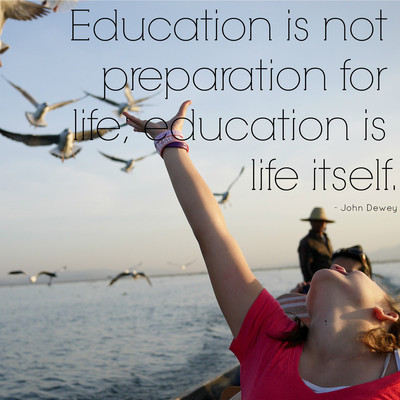Schooling Children On The Road
Distance Education
Whether you’re schooling your children on the road long term via Distance Ed or just for a few weeks, there are certain things you need to know before you step even a foot out your front door.
We’ve spoken to some veterans of the gypsy lifestyle to gather all the info you’ll want to know.
Do I Need To Enroll With Distance Ed?
Most Australian State & Territory Distance Education Centres and schools will not accept enrolments of registrations unless your family is going to travelling for at least ONE whole school term or more.
If you are going for less than one school term (eg: 6wks) you need to submit a direct application to your child’s existing school for:
-
Permission for an extended leave of absence from school.
- An assortment of relevant and realistic work that your child(ren) can study while travelling, to make sure they’re not irrevocably disadvantaged on their return.
Contact your child’s school as early as possible and be honest with them about your plans and your abilities. Don’t rely solely on information given to you by the school principal or other school management staff. Actively seek out your child’s teachers as they are the one’s who know your kids the best.
How Does Distance Education Work?
Each state or territory has their own distance education system and application procedures.
For your convenience we have provided a current links below.
Some states have multiple distance education schools and others have one centre. The important thing to remember is you must apply for enrolment (or registration) to a distance education school/centre just as you would to a normal state school, and you can only apply to a school or centre in the state in which your child is currently a resident.
Once enrolled and on the road, each school uses a variety of methods to deliver a high quality program of education tailored to your specific situation and restrictions.
Methods of Communication & Learning May Include:
-
Mail
-
Telephone
-
Online forums
-
Video conferences
-
Internet
-
Email
-
DVDS and CDs
-
Face-to-face workshops
-
Camps & excursions
-
Visits from teachers
Benefits of Distance Education
Distance Education is very different to homeschooling. Being enrolled with a Distance Education school means all the key responsibilities of learning and curriculum lie with the school. As a parent you don’t need to undergo a qualification process and assessment. You just have to be committed to ensuring your child has time to do their work, and to facilitate the process.
Distance Education is a highly individualised learning program tailored individually to the special needs of each student. The opportunity while travelling for learning things that you don’t learn in mainstream school is huge. Distance Education providers realise this, and so they often encourage curriculum based learning to be centred around what your child is experiencing while travelling.
Challenges of Distance Education
Time
You can’t be slack! Be prepared for one parent to devote a large chunk of each day to ensuring your child actually does their work, and having to explain the learning material in other ways if and when your child just doesn’t get it.
-
Sometimes this can be very frustrating for both parent and child but if you take a chill pill, see if you can get more help from other travellers or from your school, and move onto something else in the meantime, you’ll be laughing.
Re-integration
Re-integration back into school can be difficult academically but most students find it’s more the social adjustment that’s hard. Kids go from flexibly spending every day pursuing their own interests with little influence from peers, to being highly regimented in set studies with a whole world of school specific popular culture, stories and gossip they’ve missed out on.
-
Be supportive of your children and their emotions as they re-adjust to “normal life”.
-
Encourage them to continue pursuing any interests they discovered while travelling.
-
If your children will be returning into senior school, it can be a good idea to speak with knowledgeable teachers at their existing school about expectations and preparation for senior subjects they would like to take on their return.
Before You Go
-
Leave enough time to get your enrolment sorted.
-
Make sure you’re aware of, have budgeted for, have purchased, and have made space in your RV for any special equipment your child will need while away. For example: musical instruments, recording devices, computer etc.
-
Remember an important level of commitment from parents is essential.
Make sure you’re aware of the differences between home schooling and distance education.
“ ABOVE ALL ELSE,
DON’T FORGET TO ENJOY IT,
HAVE FUN,
AND LEARN & SEE AS MANY NEW THINGS AS YOU CAN!!!!!!”
Australian Distance Education Centres
QLD
http://education.qld.gov.au/curriculum/distance/
NSW
http://www.schools.nsw.edu.au/rde/distanceedu/howtoenrol/index.php
ACT
http://www.det.act.gov.au/school_education/distance_education
VIC
http://www.distance.vic.edu.au/direct-enrolments/
TAS
http://tasmanianeschool.education.tas.edu.au/Pages/Home.aspx
SA
WA
http://www.side.wa.edu.au/admissions/home-based.html
NT
http://www.education.nt.gov.au/parents-community/students-learning/distance-learning
DISCLAIMER* Please note, this advice is general in nature and we strongly recommend consulting the product manual and where relevant, a professional installer.







